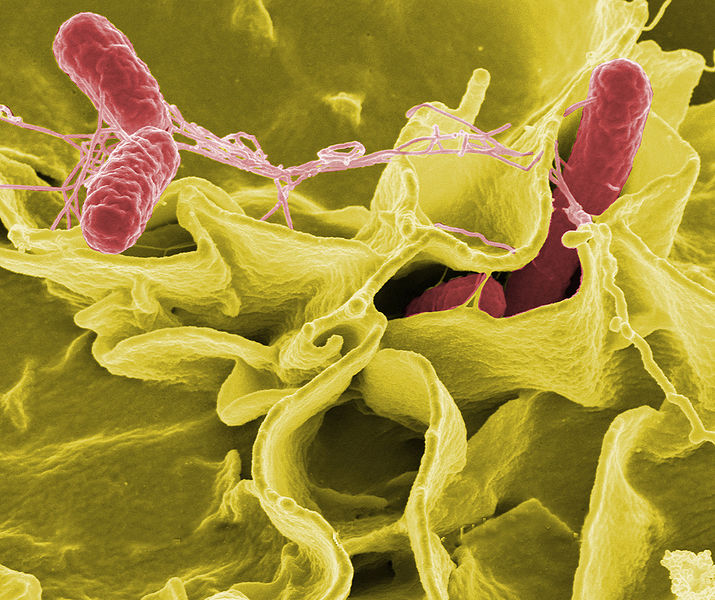Winter and the BUGS
Autoimmune diseases such as MS, Rheumatoid arthritis, psoriasis, Crohn’s and ulcerative colitis all have the basic problem where the individual’s immune system turns against itself as opposed to fighting the outside world. Something beyond the genetic set up is needed to trigger the disease and so far, celiac disease (or gluten intolerance) is the only autoimmune disease where we know what the trigger is – gluten. There are about 100 different autoimmune diseases, and in the US alone, about 50M people suffer from one or more of these conditions.

Type 1 diabetes is also an autoimmune disease, but in contrast to the ones I mentioned above, the treatment is rather different due to the progression of the disease. When a person is diagnosed with T1D, their insulin-producing cells are almost already all gone. Although scientists have shown that the human pancreas may have some regenerative capacity under certain conditions (obesity and pregnancy for example), we are not leveraging that in today’s clinical practice since there is no drug approved for that purpose yet, and we have not come up with a safe way to combat the immune system at the same time. That is the very issue with T1D, it is a constant battle between the body’s own immune system which is trying to destroy insulin-producing cells, and the lack of the body’s regenerative capacity in the pancreas. This battle can be distorted for years, and that is why some people are diagnosed as toddlers while others in their 40s! When one is diagnosed as an older individual, most often the disease is less aggressive, and perhaps these individuals still have some cells left and thus some endogenous (their own) insulin capacity.
Back to the contrast with other autoimmune diseases – in diabetes the treatment is to replace the missing hormone, insulin or to enhance the effects of insulin, while in other autoimmune diseases the treatment is to reduce the autoimmune attack since the tissue that is being destroyed often is regenerated in between flares. For example, in Crohn’s disease, the intestine is the target, but during long periods of time, there are no symptoms at all, and the goal of course is to maintain that status for as much time as possible without impacting other functions of the immune system.
So what are the risks now that we are entering the winter months? Well, for one, the flu season is upon us, children are gathering inside rather than outside, incubating their germs and spreading them more easily. There is no good scientific episode to show that the cold weather would trigger virus and bacterial infections, but common sense still says we seem to get sicker when we are cold. A person with an autoimmune disease, who needs daily medication to inhibit the immune system from destroying an organ system or tissue, is more vulnerable to catching and developing a more serious infection. The bigger problem is when the individual has caught an infection, and it spreads, since the best way to limit the damage is to improve one’s own system, but by doing this, the autoimmune disease is less restricted and can cause a flare.
My personal situation is further complicated by two organ transplants and the medication I am taking to reduce the risk of rejecting those organs. When I develop an infection, my doctors often reduce the amount of immune suppressing medication I take to allow for my own system to get rid of the infection in addition to quickly determining what the agent is that we are dealing with so that the right kind of anti-infective medication can be put in place. Targeting the virus, bacteria or parasite correctly and quickly is of utmost importance, and today’s analytical equipment is quite sophisticated but it still often takes days for the final result. Prior to having that, the doctors often prescribe some super duper antibiotic to kill off a majority of bugs, and in my case, that lead to opportunistic bugs taking over last year and three bouts of clostridium difficile ensued. When the immune suppressants have been reduced, I face two major threats, one being rejecting my kidney and pancreas on the basis of foreign bodies inside my body, and the second one my own autoimmunity may flare up and start attacking the new pancreas, like it did my first one.
My advice to anyone with an autoimmune disease, or with an organ transplant, is to try to avoid getting sick! Easier said than done, and one cannot live one’s life inside a bubble, but there are a few simple precautions:
1: avoid interacting with large groups of people (especially young children) inside during the winter months
2: wash your hands after using public transportation and before having food or drinks
3: do not eat any raw foods in restaurants, including pre-cut fruits
4: ask for water without ice when traveling to exotic places
5: if someone at work or in school is sick, do not interact with them
6: as soon as you start feeling a cold coming on, take precautions such as hydrate, rest, and if you have a temperature, seek medical advice asap
7: make sure you have taken the flu shot and any other vaccinations appropriate in the locale you are residing